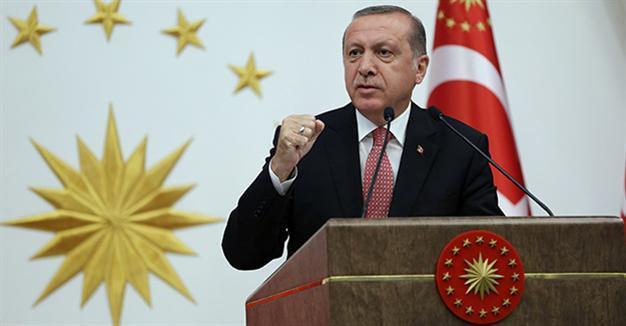Turkey’s Erdoğan signs bill lifting 152 lawmakers’ immunity, paves way for 799 cases
Oya Armutçu - ANKARA
 Turkish President Recep Tayyip Erdoğan approved a bill late June 7 that will lift lawmakers’ immunity from prosecution, paving the way to have the immunities of a score of lawmakers lifted.
Turkish President Recep Tayyip Erdoğan approved a bill late June 7 that will lift lawmakers’ immunity from prosecution, paving the way to have the immunities of a score of lawmakers lifted. The related constitutional amendment was published in the Official Gazette on June 8, opening the way for the trial 152 legislators, amounting to 27.6 percent of the total number of seats.
A total of 799 cases have been opened against lawmakers, including the leader of the main opposition Republican People’s Party (CHP), Kemal Kılıçdaroğlu, and deputies from the Peoples’ Democratic Party (HDP).
There are no summaries of proceedings against only four deputies out of 59 deputies in parliament elected under the HDP ticket, while there are summaries of proceedings against the leaders of all three opposition parties holding seats in the national assembly.
The HDP has, meanwhile, announced they will appeal to the European Court of Human Rights (ECHR) to stop the proceedings upon Erdoğan’s approval of the law.
Critics of the bill suggest it is aimed at evicting members of the HDP, which is focused on the Kurdish issue.
“With the law having come into force, our application rights recognized within the framework of national and international legislation will be used,” Aysel Tuğluk, Diyarbakır deputy and co-deputy chair of the HDP, said on June 8 in a written statement.
Speaking at a parliamentary group meeting held on the same day, one of the party’s co-chairs, Figen Yüksekdağ, stated that Erdoğan approved the amendment deliberately on the evening of June 7 in order to give a very clear message to the HDP.
“The message was not given to us. It is an act of reprieve in the presence of his major fear. It is an act of suppressing fears. He is scared to death of the date June 7. To suppress that fear, you approved the immunity law a year later on June 7,” Yüksekdağ said.
On June 7, 2015, Turkey held regular parliamentary elections, yet the results did not produce a single-party government, in part because the HDP passed the 10 percent election threshold, and coalition talks failed, leading up to the Nov. 1, 2015, snap elections.
In the Nov. 1, 2015, election the AKP secured 317 seats in the 550-member parliament. For a constitutional change in parliament, the AKP needed to win 367 seats, though 330 seats would be enough to take the issue to a referendum.
“Hereby, we repeat our call to all members of the parliament about the 110 MP signatures that are needed so that we can apply to the Constitutional Court for the judicial review of the provisional article that was added to the constitution,” Tuğluk said.
“Also regarding the matter of the violation of fundamental rights and freedoms, we point out to the public and the press that in the name of our party, whose democratic politics opportunities have been violated, and our MPs, that an application will be filed to the European Court of Human Rights,” she said.
















